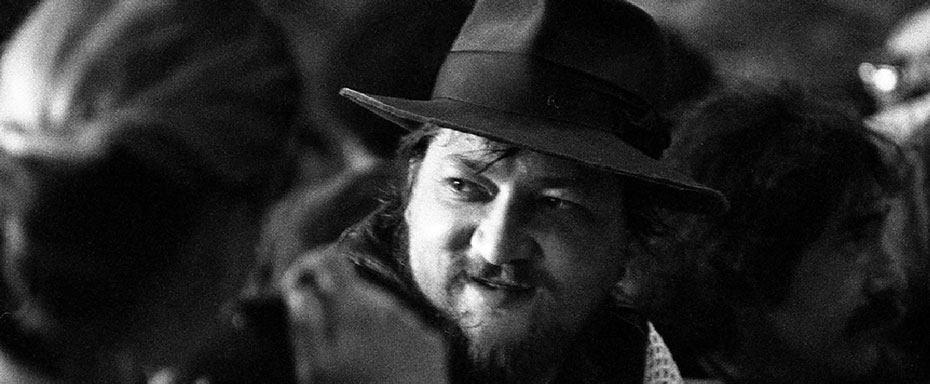
Hello, my dear subscribers. Today, we are proceeding with our regular blog about new European wave directors. This time, I am going to tell you about one of the most prominent and outstanding figures in German cinema – Rainer Werner Fassbinder. He is widely recognized as one of the primary cultural figures of his time, becoming one of the most distinctive and innovative artists of his generation.
Rainer Werner Fassbinder was born in May of 1945, just several weeks after Germany was occupied by allied forces. Coming from a cultured bourgeois family, Reiner was always supported by his parents in his aspiration to become a dramatist and screenwriter. At the age of eighteen, Reiner Werner Fassbinder started learning drama in his native Munich. For the next couple of years, young Fassbinder had also taken multiple part-time jobs as an assistant on the film sets and written original scripts following his dream to become a director.
Themes and Inspirations
Fassbinder’s plays and movies are widely known for his sophisticated visual aesthetics heavily inspired by the modern German theatre and Bertild Brecht’s theater in particular. As a classically trained theatre director, he frequently adopted the theater stage aesthetics and principles to the movie scenes with a great emphasis on acting and actors. His characters were often the underdogs and disadvantaged people within German society – people of the older generation, finding themselves in the new society – immigrants, proletariat, outcasts, and artists. Denying “the heroic” as the power that led Germany to the Second World War, Fassbinder was showing the lives of ordinary people that were not widely depicted by the German cinema of those years.
At the age of 24, Reiner Werner Fassbinder released his breakthrough movie Katzelmacher, which established him as a new German cinema star. Luckily for the young artist, he was highly praised by the cinematographic society, and since then, he had got immense support from the local authorities and producers. After the release of Katzelmacher, Fassbinder started the most fruitful period in his career, releasing up to three movies or plays a year. Nevertheless, Fassbinder had always been an underdog, criticizing the German society and politics, supporting radical communist organizations like RAF, instantly provoking the dialog on themes supplanted by German sub-conscience.
Artistic Heritage
Reiner Werner Fassbinder is highly recognized as one of the most productive great directors of his generation. Even though his career lasted less than two decades, he created 40 feature films, two television series, three short films, and 24 theatre plays. At the same time, none of those works should be considered secondary, as every Fassbinder’s movie features its unique aesthetics, concept, and theme. As a modernist and innovator, Reiner Fassbinder was masterfully combining cliches from classic Hollywood movies with Greek theatre play’s features, looking for new ways of expression and expanding the horizons for the future generations of artists.
Regretfully, Fassbinder’s career was relatively short – the great director died in 1982 at 37. He was found in his hotel room after the mixed drug overdose. The director often used stimulant drugs to focus on writing and producing scripts, which finally led him to heart failure. At the moment of death, Fassbinder was creating a script for his new movie that had to be dedicated to the life of Rosa Luxemburg.
Major Works
Katzelmacher – (1969)
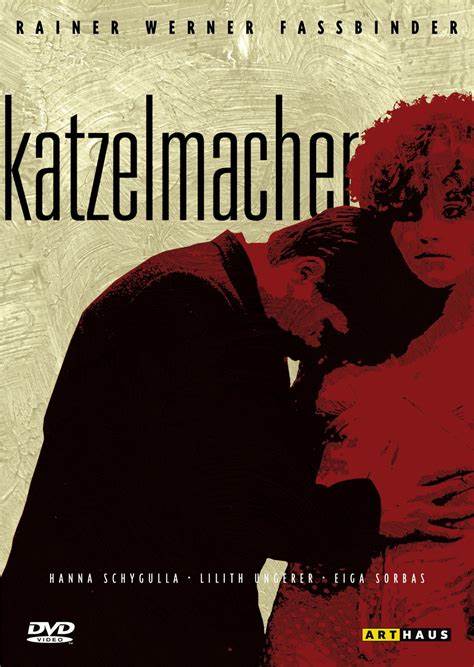
Fassbinder’s breakthrough movie Katzelmacher takes us to the late-60’s Germany. The main characters of the movie are the lower class workers. They are rambling aimlessly around their neighborhood until the peace of the community is disturbed by the arrival of the Greek immigrant worker. In Katzelmacher, Fassbinder explores such themes as the lives of the working class, the stagnation of German society, and, of course, German chauvinism and fear against strangers.
The Bitter Tears of Petra von Kant – (1972)
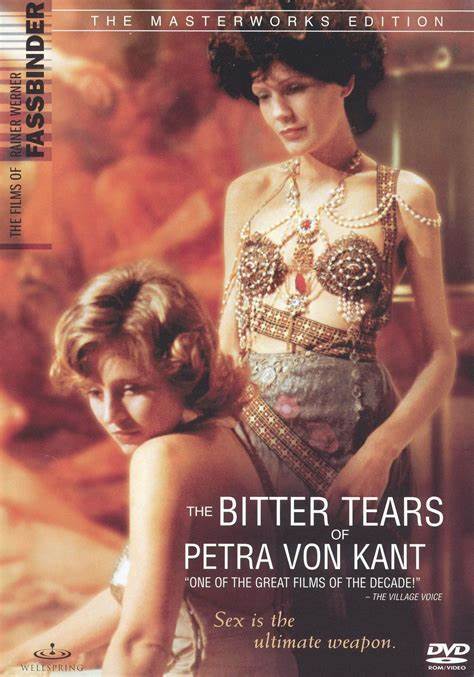
One of Fassbinder’s milestone works that made the director a big name on the international level. The Bitter Tears of Petra von Kant is a thought-provocative drama that explores human sexuality, relationships, and human nature as a whole. Filmed in a single room, this terrific kammerspiel is a perfect example of Fassbinder’s talent as a stage director, screenwriter, and dramatist.
World on a Wire – (1973)
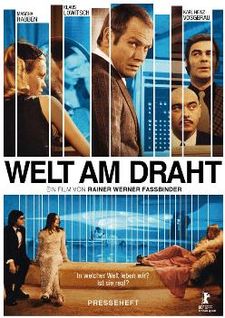
The only Sci-Fi movie created by Fassbinder, World on Wire, is a beautiful piece of low-budget Sci-Fi that grabs all the viewer’s attention with special effects, mostly relying on a brilliant and thrilling script created by Fassbinder. Later, the movie became one of the greatest inspirations for the creators of The Matrix, the Wachowski sisters.
Ali: Fear Eats the Soul – (1974)
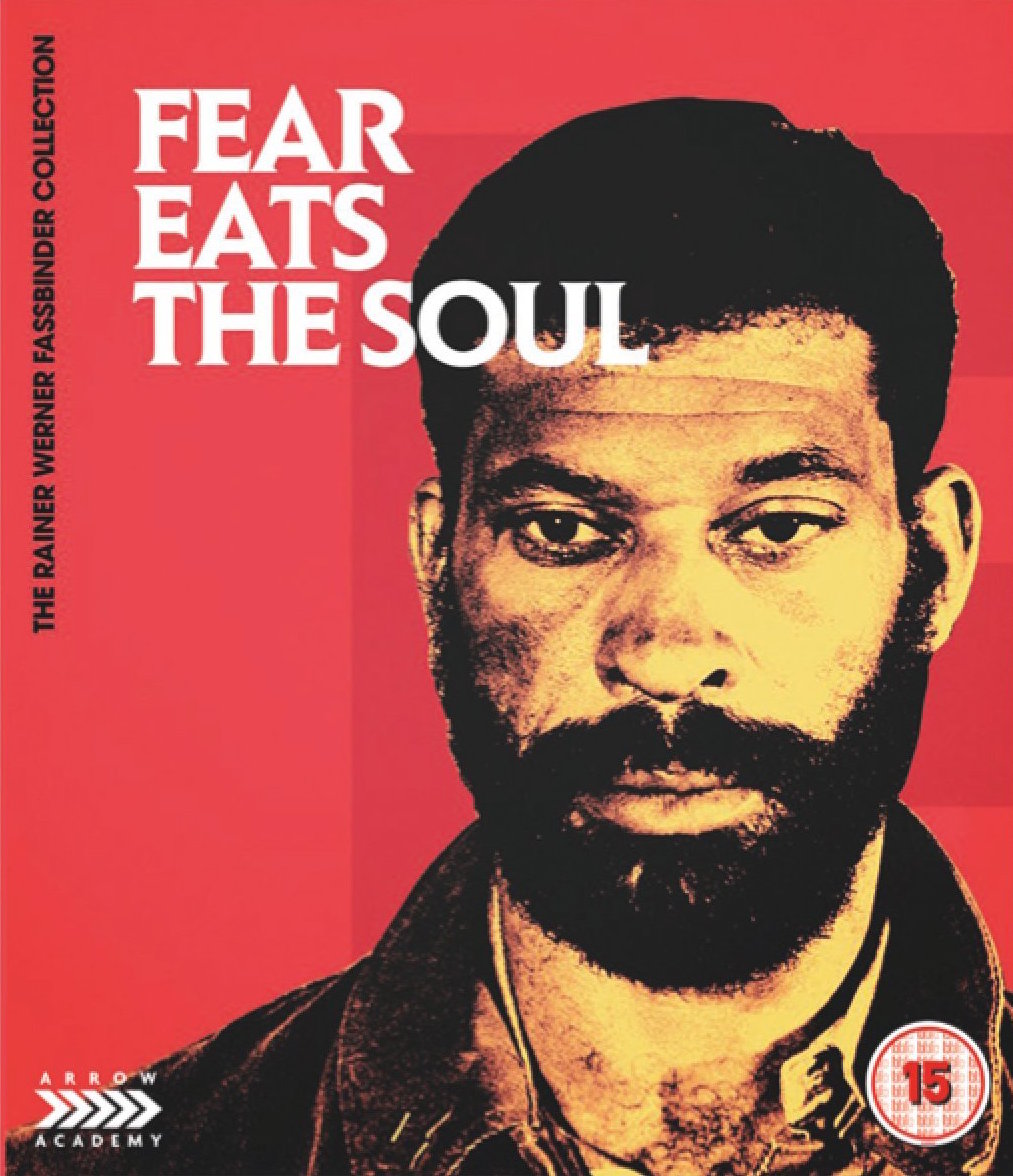
Ali: Fear Eats the Soul is a brilliant tragicomedy that tells the story of a young Moroccan immigrant who falls in love with an old German woman. One of Fassbinder’s brightest social acute movies, Ali explores themes of relations, age, immigration, sex, and language.
Berlin Alexanderplatz – (1980)
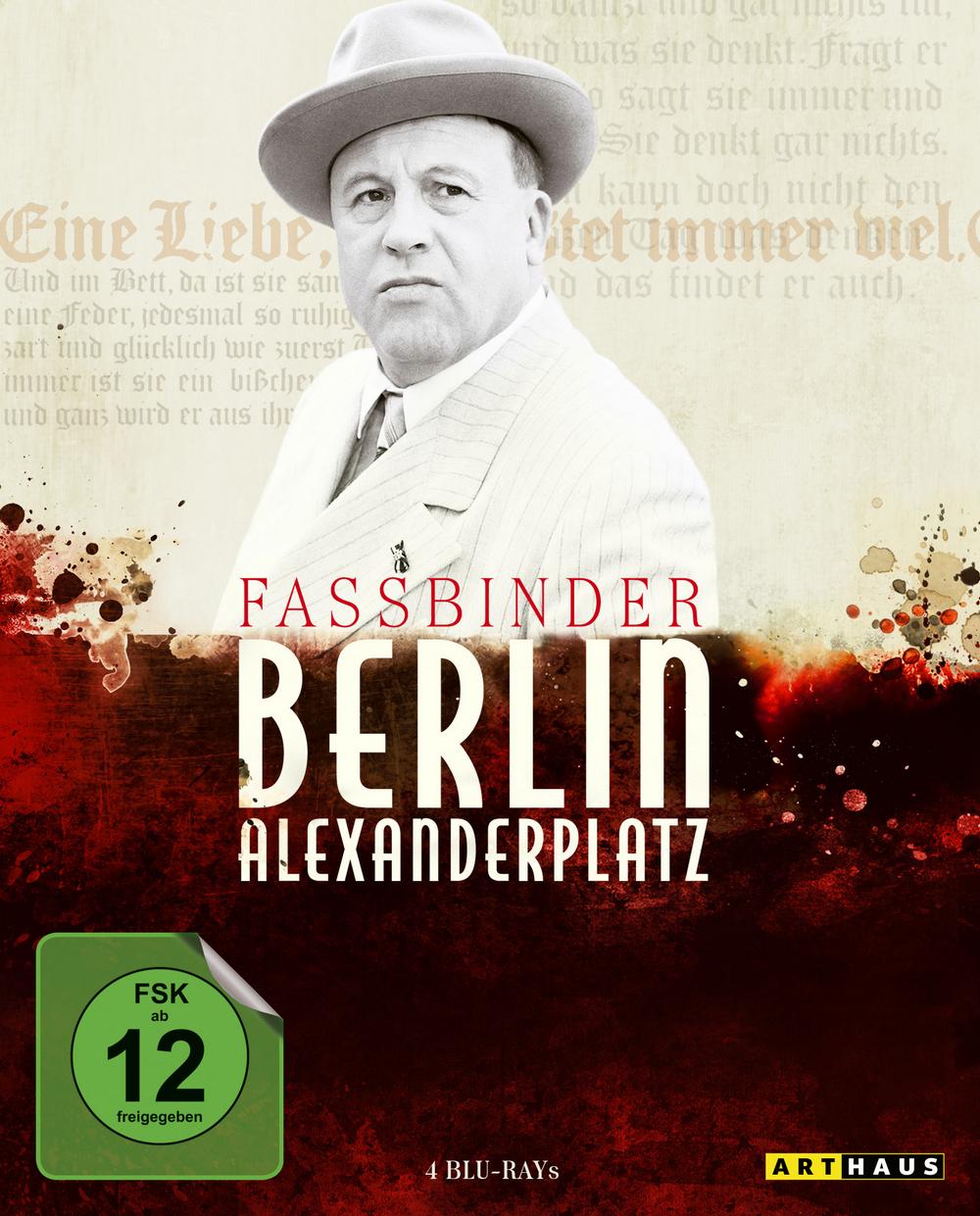
An epic 16-hour movie divided into 14 episodes is widely regarded by many film critics as a Fassbinder’s magnum opus. Based on the novel of the same name by Alfred Doblin, Berlin Alexanderplatz opens a wide panorama of the Weimar Republic of Germany. One of Fassbinder’s greatest Art movies, Berlin Alexanderplatz, incorporates such aesthetics as neo-noir, social drama, period drama, and art film.





